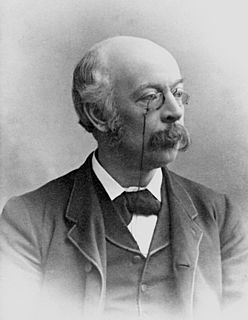A Quote by Robert Hass
I think that poets can say, "What we want is for everybody on earth to wake up free from fear and with access to medicine and clean water and education." But I don't think poets have any special insight on how to get there. And the 20th century is a pretty good record of that because so many of the great poets were Stalinists: Vallejo, Neruda, Eluard, Aragon, etc. They wrote their odes to Lenin and Stalin. They glorified some of the most violent and grotesque dictatorships of the 20th century. And a lot of the ones who were not Stalinists were fascists or fascist sympathizers.
Quote Topics
Access
Any
Because
Century
Clean
Clean Water
Earth
Education
Etc
Everybody
Fascist
Fascists
Fear
Free
Get
Good
Good Record
Great
Great Poet
Grotesque
How
Insight
Lenin
Lenin And Stalin
Lot
Many
Medicine
Most
Odes
Poets
Pretty
Pretty Good
Record
Say
Some
Special
Stalin
Think
Up
Violent
Wake
Wake Up
Want
Water
Were
Wrote
Related Quotes
My biggest poetic influences are probably 20th-century British and Irish poets. So I suppose I'm always listening for the music I associate with that poetry, the telling images, the brevity. I want to hear it in my own work as well as in the poetry I read. However, I think I'm generally more forgiving of other poets than myself.
Nearly all men and women are poetical, to some extent, but very few can be called poets. There are great poets, small poets, and men and women who make verses. But all are not poets, nor even good versifiers. Poetasters are plentiful, but real poets are rare. Education can not make a poet, though it may polish and develop one.
I was really interested in 20th century communalism and alternative communities, the boom of communes in the 60s and 70s. That led me back to the 19th century. I was shocked to find what I would describe as far more utopian ideas in the 19th century than in the 20th century. Not only were the ideas so extreme, but surprising people were adopting them.
I started moving away from poets like Wallace Stevens and Hart Crane and started reading poets like, again, Karl Shapiro, Howard Nemerov, Philip Larkin, and the British poets who were imported through that important anthology put together by Alvarez - and those would include Thom Gunn and Ted Hughes. And I think these poets gave me assurance that there were other ways to write besides the rather involuted style of high modernism whose high priests were Pound, Eliot and Stevens, and Crane perhaps.
More girls were killed in the last 50 years, precisely because they were girls, than men killed in all the wars in the 20th century. More girls are killed in this routine gendercide in any one decade than people were slaughtered in all the genocides of the 20th century. The equivalent of 5 jumbo jets worth of women die in labor each day... life time risk of maternal death is 1,000x higher in a poor country than in the west. That should be an international scandal.
It is amazing how many of the horrors of the 20th century were a result of charismatic quacks misleading millions of people to their own doom. What is even more amazing is that, after a century that saw the likes of Hitler, Lenin and Mao, we still see no need to distrust charisma as a basis for choosing leaders, either in politics or in numerous organizations and movements.
I just said let's get some poets on tv. And when they said that sounded unlikely, I made it worse. I said, no man, I want to put a bunch of black poets on stage, too. Some Latino poets who barely speak English and Asian poets who can't believe how discriminated against they are. It was luck nad being in the right place. I wasn't saying nothing somebody else wasn't saying but they wouldn't hear it from them.






































